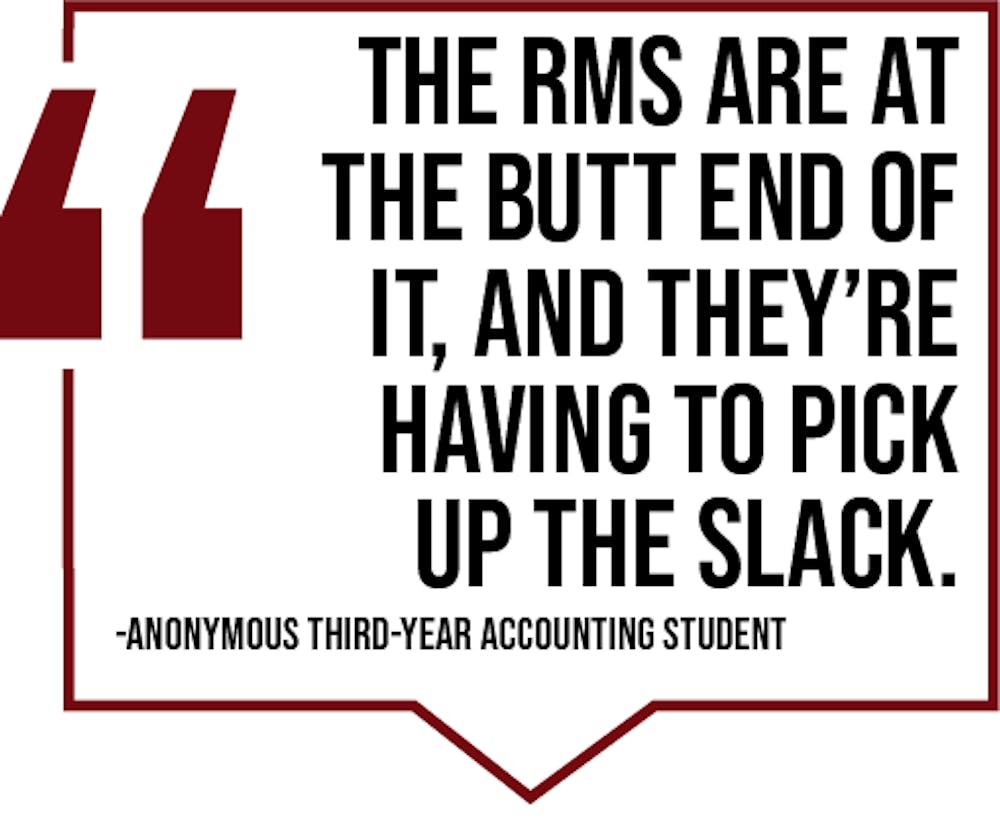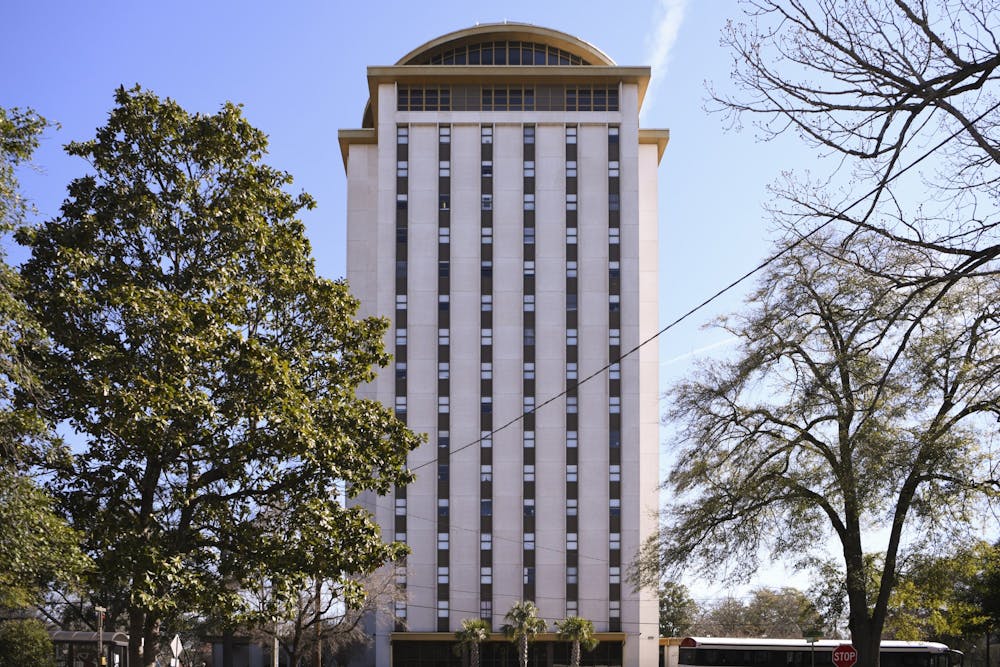University housing made changes to some of its operations in response to the pandemic, such as limiting residence hall desk hours and eliminating lead resident mentor positions, which add to the responsibilities of current resident mentors (RMs).
Some of an RM's everyday responsibilities include providing support and resources to their residents, hosting regularly-scheduled community meetings and working hours at the service desk in their residential community.
One former RM and third-year accounting student who chose to remain anonymous said they have kept in touch with current RMs, who say the pandemic has increased their workload even more.

“The RMs are at the butt end of it, and they’re having to pick up the slack,” the third-year accounting student said.
Second-year exercise physiology student Sydney Nestor was an RM in the fall until she transferred to East Carolina University in the spring.
Nestor said the increased workload she experienced in the fall came primarily from the unexpected tasks university housing would assign her.
"Every week there was something new that was being tagged to my role as an RM," Nestor said.
Nestor said she felt like she was working “significantly more” than the 20 hours per week RMs are paid for.
“I was doing a whole lot more work while I was there than I had originally planned to,” Nestor said. “Kind of every week there was something else that was needed of us.”
One of the biggest changes brought on by the pandemic is the limited visitation policy, which has decreased the number of hours RMs are needed to work at the visitation desks in residence halls.
Fourth-year public health student Nancy Sterrett was an RM during the 2018-2019 school year and the fall of 2019. She said during her second year as an RM, a push began to get rid of the 24/7 desk hours in most residence halls.
This change eventually came to fruition as part of the university’s COVID-19 response, according to Josh Wise, the director of communications marketing for university housing.
Sterrett said this change decreased the number of extra hours RMs are able to work for hourly pay outside their sanctioned 20 hours every week, which they are upset about, given any outside employment they might seek out must first gain approval by housing and must be no more than 10 or 15 hours per week.
“A lot of people that I am still friends with who live on campus, often they’re still being an RM out of necessity, and have been super frustrated with those new rules,” Sterrett said.
RMs are not allowed to hold any additional employment on or off-campus their first semester working, unless approved by their direct supervisor and the assistant director of housing, according to the 2020 RM position description. After their first semester as an RM, they must still gain approval for any outside employment.
One other change affecting the availability of desk hours for RMs is the downsizing of the SPURS organization, which is a group of student employees who perform various housing duties, such as manning the FIXX call line and various residence hall desks throughout campus.
Wise said the SPURS program has downsized to around 30 students because of the pandemic, but that housing hopes to be able to increase the program’s numbers in the future.
“We’ll continue to look to develop that program as we return to a more normal operating schedule,” Wise said.
Eliminating the lead RM position has also been a point of frustration for many RMs who feel they have taken on the same duties without compensation. When it existed, the position gave a select few RMs more responsibility, such as extra desk hours and nights on duty and a pay raise.
“You still have students who are doing that, but there isn’t any pay difference now,” Sterrett said.
Wise declined to comment on why housing decided to get rid of the position.
Despite any added job responsibilities, Nestor said her time as an RM at USC was an overall positive experience.
Nestor and other RMs adjusted well to the change in responsibility brought on by COVID-19, according to Wise.
“We all had to come together to adjust for a COVID school year, and our students have responded amazing to that,” Wise said. “They’ve all been ready and willing to do what they needed to do to give the residents a good experience.”
Editor's Note: Nancy Sterrett also works for the Garnet and Black magazine. The Garnet and Black magazine is a part of Garnet Media Group, which is the Daily Gamecock's parent organization.

